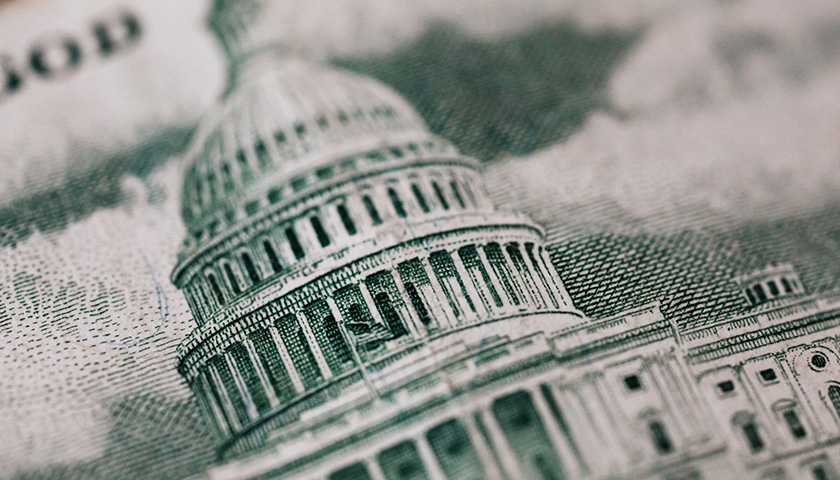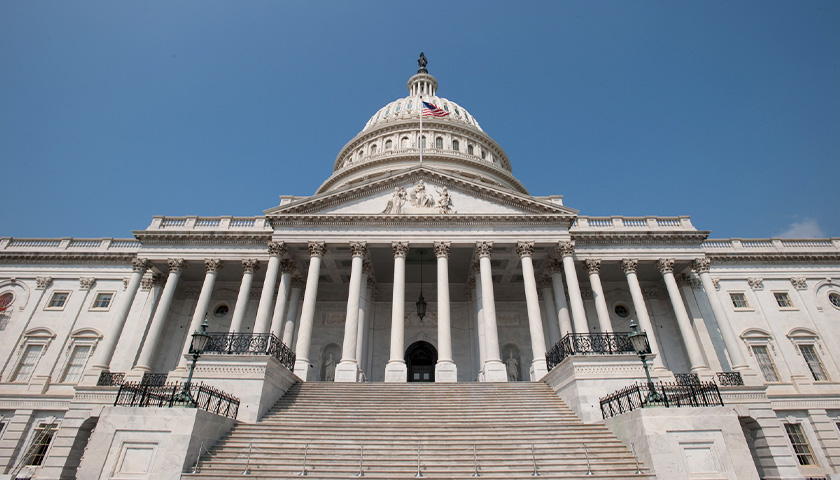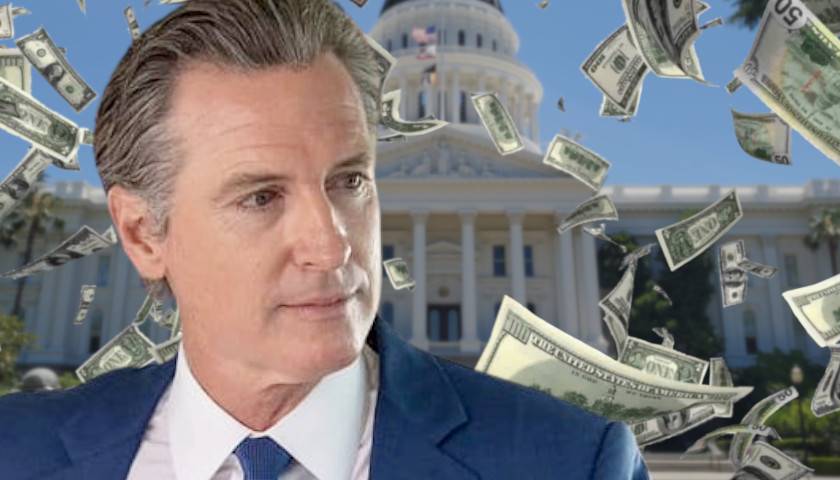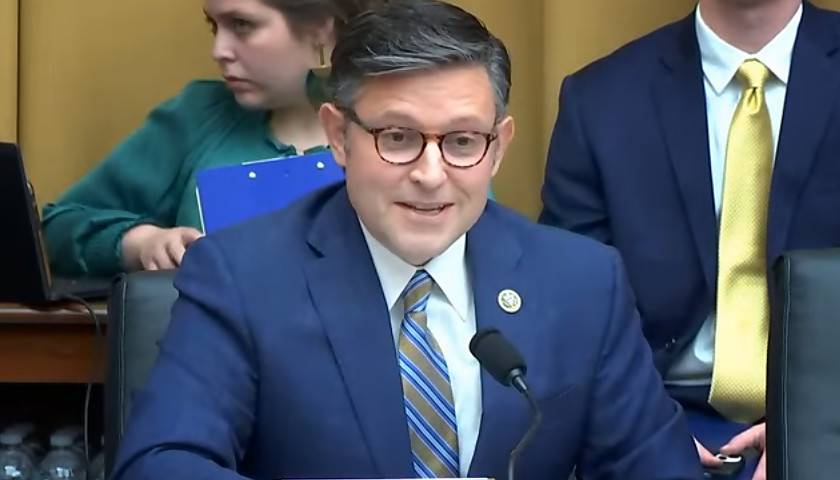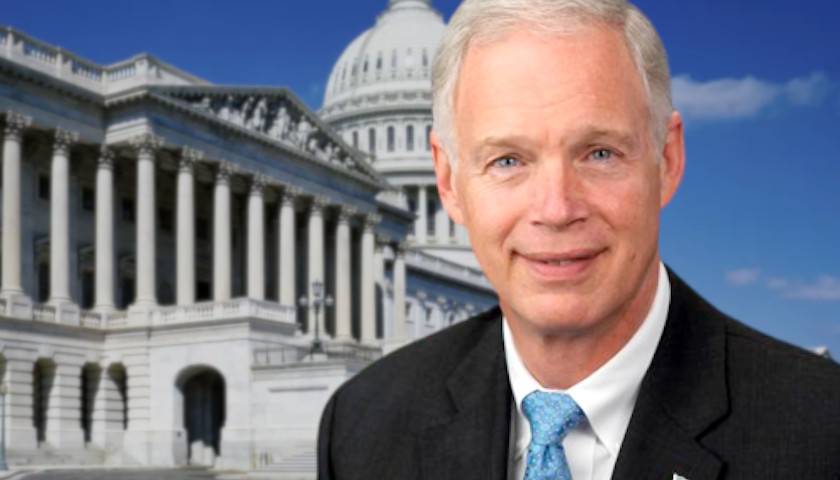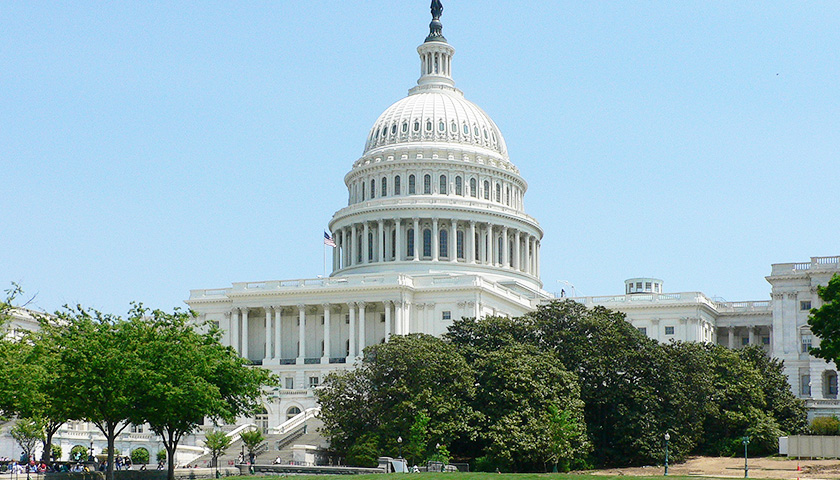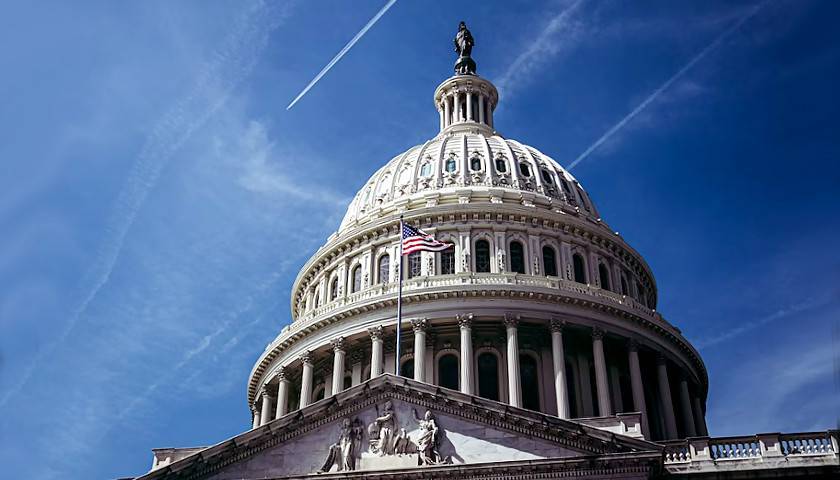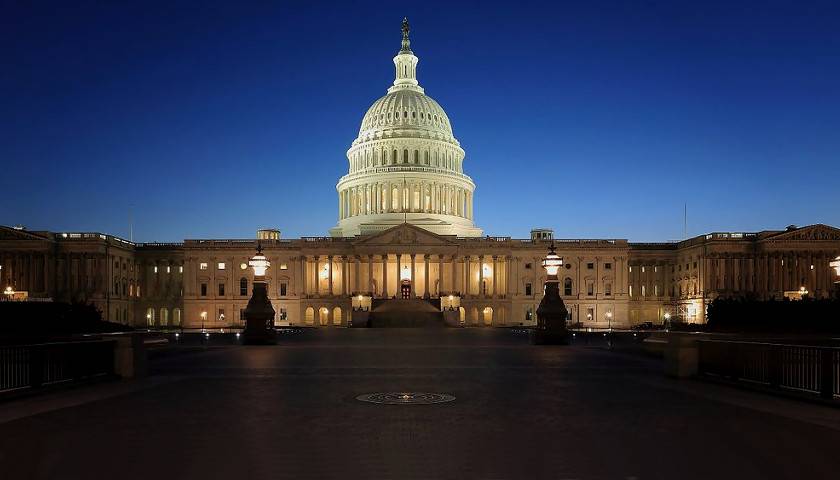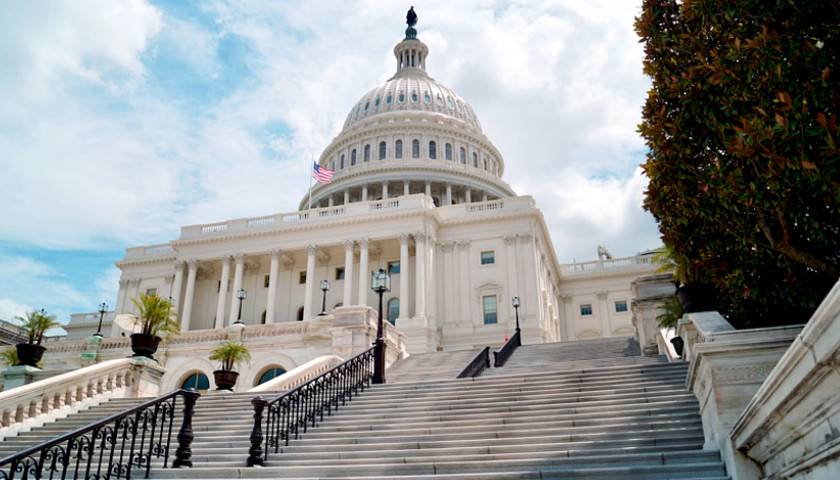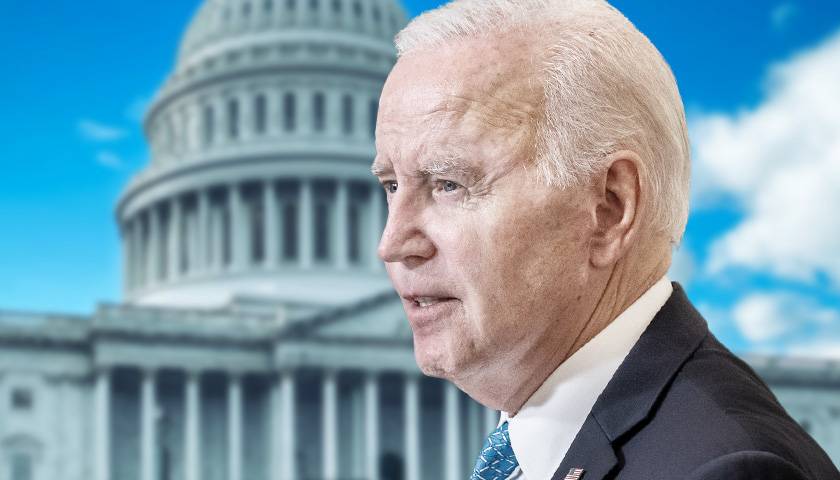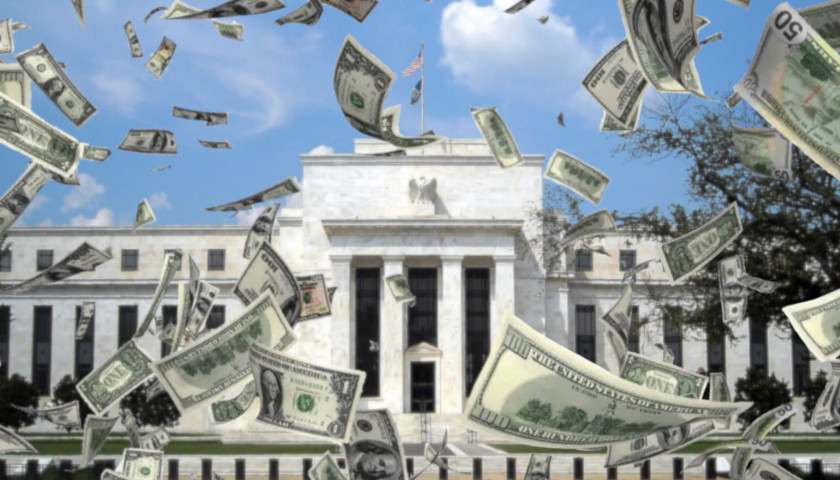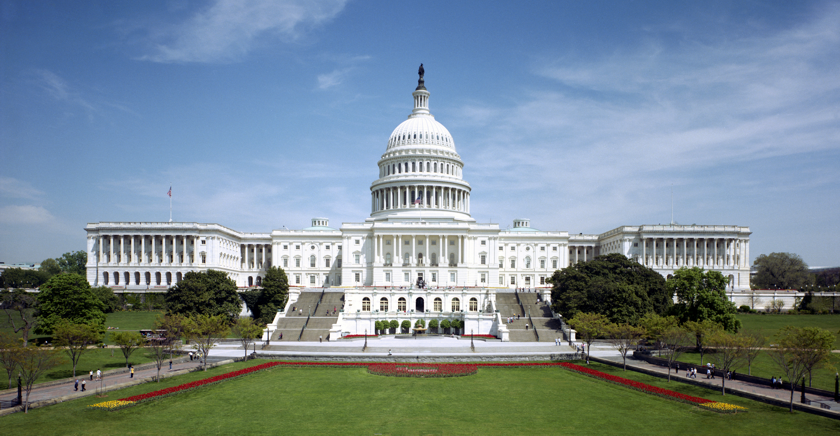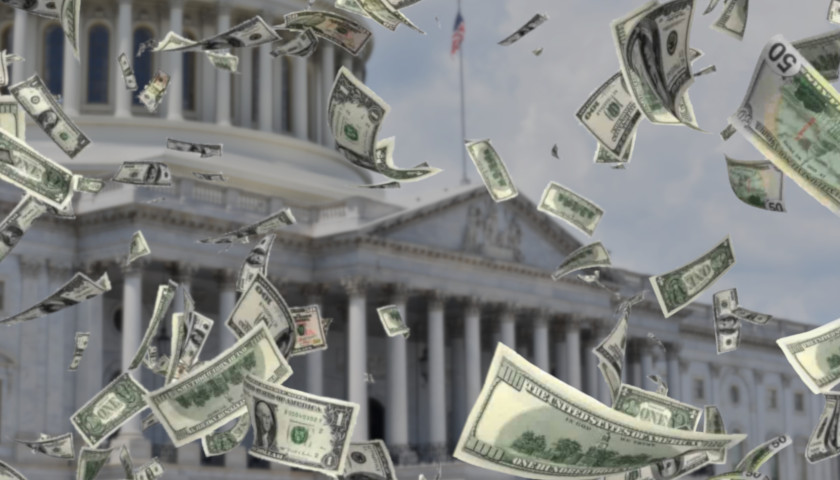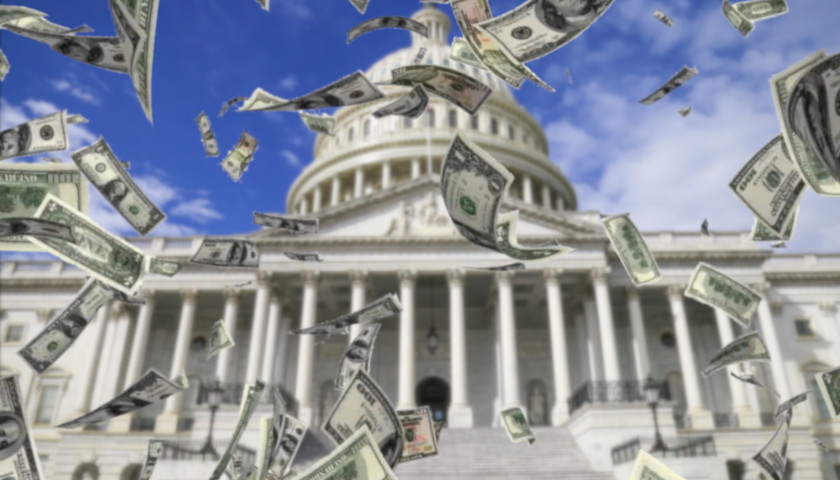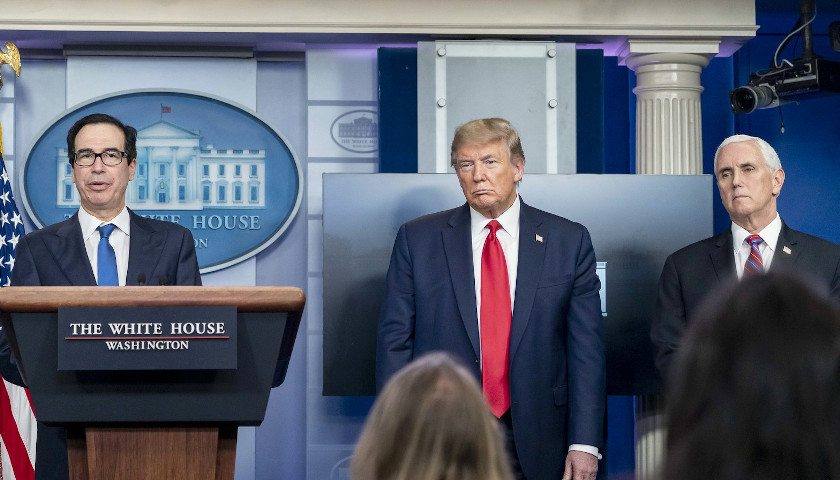As 2025 approaches, America’s fiscal health is in serious trouble with a ballooning federal debt exceeding 100% of the GDP.
Read MoreTag: Deficit
U.S. House Moves Forward with Stopgap Spending Bill that Doesn’t Include Election Integrity Law
The Republican majority in the United States House of Representatives is now planning to vote on a stopgap spending bill that will not include a critical election integrity measure that conservatives have been desperately trying to pass.
Read MoreGavin Newsom’s California Has a $68 Billion Budget Deficit
California’s budget deficit has nearly tripled since last year, culminating in the largest revenue discrepancy the state has ever seen, according to a report from the state’s Legislative Analyst’s Office (LAO).
The state’s budget deficit ballooned to $68 billion this year after recording a deficit of $24 billion last year, owing to an unprecedented tax-revenue shortfall, according to the LAO report. The deficit is the highest in dollar terms that the state has ever seen, but not as a percentage of overall spending, according to Politico.
Read MoreCommentary: Oh Great, Another ‘Debt Commission’
Recognizing the precarious plight of the nation’s fiscal situation, newly installed House Speaker Mike Johnson has called for a bi-partisan commission to study the nation’s debt. Everyone involved in federal fiscal policy for a length of time surely responded with some variation on, “Good grief, Charlie Brown.” Congress has formed and ignored innumerable such groups over many decades.
Read MoreWisconsin U.S. Senator Ron Johnson Pushes Shutdown Prevention Bill to End ‘Stupid Exercise’
Another game of shutdown chicken ended last weekend with the status quo and the ousting of House Speaker Kevin McCarthy.
U.S. Senator Ron Johnson (R-WI) says its time to end the senseless — and costly — practice of shutdown politics.
Read MoreCommentary: House Freedom Caucus Wants To Do Something About Out of Control Spending
On Monday, the House Freedom Caucus (HFC) struck a blow in the fight for fiscal displume. In a 431-word statement, the conservative House Republicans put Official Washington on notice that when Congress returned in September and took up the seemingly annual short-term spending bill known as a “Continuing Resolution,” the HFC would not vote to fund business as usual. Instead, HFC members would only support a short-term spending bill to keep the government open if it also included several of their key policy priorities – policy priorities that would represent significant shifts in key areas of government policy.
Read MoreSenate Passes Compromise Debt Deal to Avert Default
The U.S. Senate on Thursday evening passed a compromise deal to suspend the debt ceiling until after the presidential election while capping the rate of spending growth in subsequent years.
Read MoreHouse Passes Compromise Deal to Suspend Debt Ceiling, Cut Spending
The House of Representatives on Wednesday evening passed a bipartisan deal to suspend the debt ceiling and cut spending ahead of a June 5 deadline to avert a national default.
Read MoreGOP-Led House Expected to Vote Wednesday on Debt Limit Compromise Legislation
The GOP-led House is expected to vote Wednesday on the legislation resulting from a compromise between House Speaker Kevin McCarthy and President Joe Biden on the debt limit.
Read MoreCommentary: Any Debt ‘Default’ Will Be Biden’s Choice
There’s enough revenue to pay interest on the debt even if the $31.4 trillion debt ceiling is reached.
Meaning, if the U.S. defaults on the debt on June 1, it will be because President Joe Biden chose not to make principal and interest payments on U.S. Treasuries out of existing revenue, for which there is more than ample revenues to service and refinance up to the current debt ceiling limit, $31.4 trillion.
Read MoreCommentary: The Interest Alone on the National Debt Will Hit $1 Trillion in 2024 as Reserve Currency Status Is Questioned
Gross interest owed on the $31.4 trillion national debt — that is, interest owed on both the $24.9 trillion publicly traded debt and the $6.7 trillion debt in the Social Security, Medicare and other trust funds — will reach a gargantuan $1 trillion in 2024 for the first time in American history, according to the latest data gathered by the White House Office of Management and budget.
To put that into perspective, that is more than is spent on national defense related spending, currently $814 billion.
Read MoreHouse Speaker Fight Foreshadows Larger Debt Ceiling Battle on the Horizon for Republicans
The gridlock that paralyzed House Republicans over the past week in their quest to elect a new Speaker could be a foretaste of more to come, with party moderates and conservatives set to tangle in the months to come over raising the debt ceiling and reining in reckless government spending.
Although newly elected Speaker of the House Kevin McCarthy ultimately prevailed in his bid for the office over a small but determined band of House Freedom Caucus members, his slim GOP majority in the House will be vulnerable if and when conservatives rebel again down the road, as some are predicting, in an effort to reassert debt reduction as a top priority for the party.
Read MoreCommentary: Don’t Give an Inch on the Debt Ceiling
The dust has barely settled from the contentious midterms, and the battle lines are already being drawn for the next legislative fight in Washington: the debt ceiling. With the nation at unprecedented levels of indebtedness, the choice in this fight is a stark one: a path toward stability or fiscal Armageddon.
If that sounds hyperbolic, consider the following facts about America’s finances.
Read MoreCommentary: The Biden Inflation Tax, Made Clear in One Chart
What is all this “Biden inflation tax” talk really about? What is the actual effect of inflation on the lives of real people?
Well, below is a chart that compares yearly wage and inflation rates for each month from 2017 through July of this year using Bureau of Labor Statistics data. Wage rates are in blue and inflation (as measured by the consumer price index) is in red. When blue is on top, as it was during the entire Trump administration, workers’ wages are beating inflation and their standards of living are improving. When red is on top, they’re not.
While President Biden claims that it is “indisputable” that his jobs plan “is working,” this chart unequivocally shows that it is not, at least not for American workers. Rather, inflation is surging, more than wiping out any wage gains those workers might have experienced.
Read MoreThe Congressional Budget Office Says the Bipartisan Infrastructure Bill Will Increase Deficits by $256 Billion over 10 Years
The Congressional Budget Office estimated Thursday that the bipartisan Senate infrastructure bill will add $256 billion to the deficit over the next decade, undercutting its backers’ claims the spending had been offset.
In FY2020, the deficit hit a record $3.1 trillion. So far in FY2021, the deficit is $2.2 trillion. The national debt is climbing to $29 trillion for the first time in U.S. history.
Read MoreBiden’s ‘American Jobs’ Plan Could Cost Taxpayers about $666,000 per Job Created
President Joe Biden’s proposed $2 trillion American Jobs Plan could end up costing taxpayers more than $666,666 per job created.
The Washington Post gave Biden “two Pinocchios” for saying the American Jobs Plan, his infrastructure and jobs proposal, will create 19 million jobs. Both Biden and his Transportation Secretary Pete Buttigieg have made the 19 million jobs claim. The source of the statement is a Moody’s analysis, which CNN pointed out had estimated the U.S. economy would add about “16.3 million jobs over the same period if the infrastructure proposal does not get passed.”
Read MoreCBO Says Budget Deficit Will Hit $2.3 Trillion in 2021
The U.S. budget deficit will be larger than expected because of the $900 billion stimulus bill passed in December, a whopping $448 billion larger than was projected in September, the Congressional Budget Office said Thursday.
According to Breitbart, the CBO forecasts that the federal government will borrow $2.26 trillion this year making it the second-largest deficit since World War II. Last year’s $3.1 trillion was the biggest in absolute numbers and also the largest as a share of gross domestic product.
Read MoreBudget Deficit Spiked in January, CBO Report Finds
The federal budget deficit grew a whopping 400% in one year as the pandemic caused spending to skyrocket, the Congressional Budget Office said in a report Tuesday.
The estimated January federal budget deficit was $165 billion, $132 billion more than the deficit in January 2020, according to a Congressional Budget Office (CBO) report released Tuesday. The federal budget in the first four months of fiscal year 2021, which started in October, was $738 billion, an 89% jump compared to the same period last year.
Read MoreU.S. Deficit 60.7 Percent Higher Than This Time Last Year
The federal deficit in the first three months of the budget year is 60.7 percent higher than over the same time period as last year, a record-breaking $572.9 billion.
The deficit surged as a result of Congressional spending of $3.5 trillion in 2020 in response to the coronavirus, although critics note that spending on pork barrel programs that had nothing to do with the virus increased and also drove the deficit. At the same time, revenue declined because of ongoing state lockdowns.
Read More
